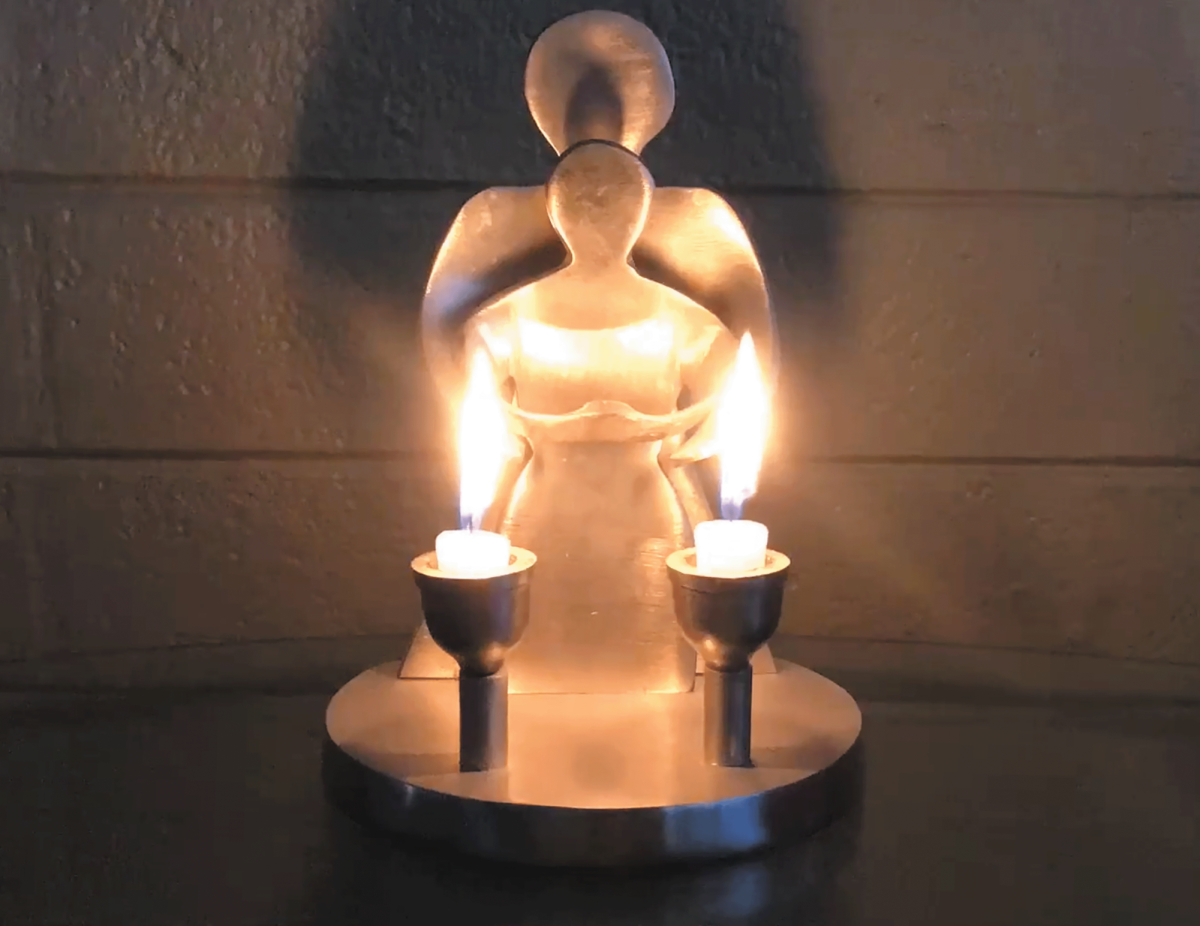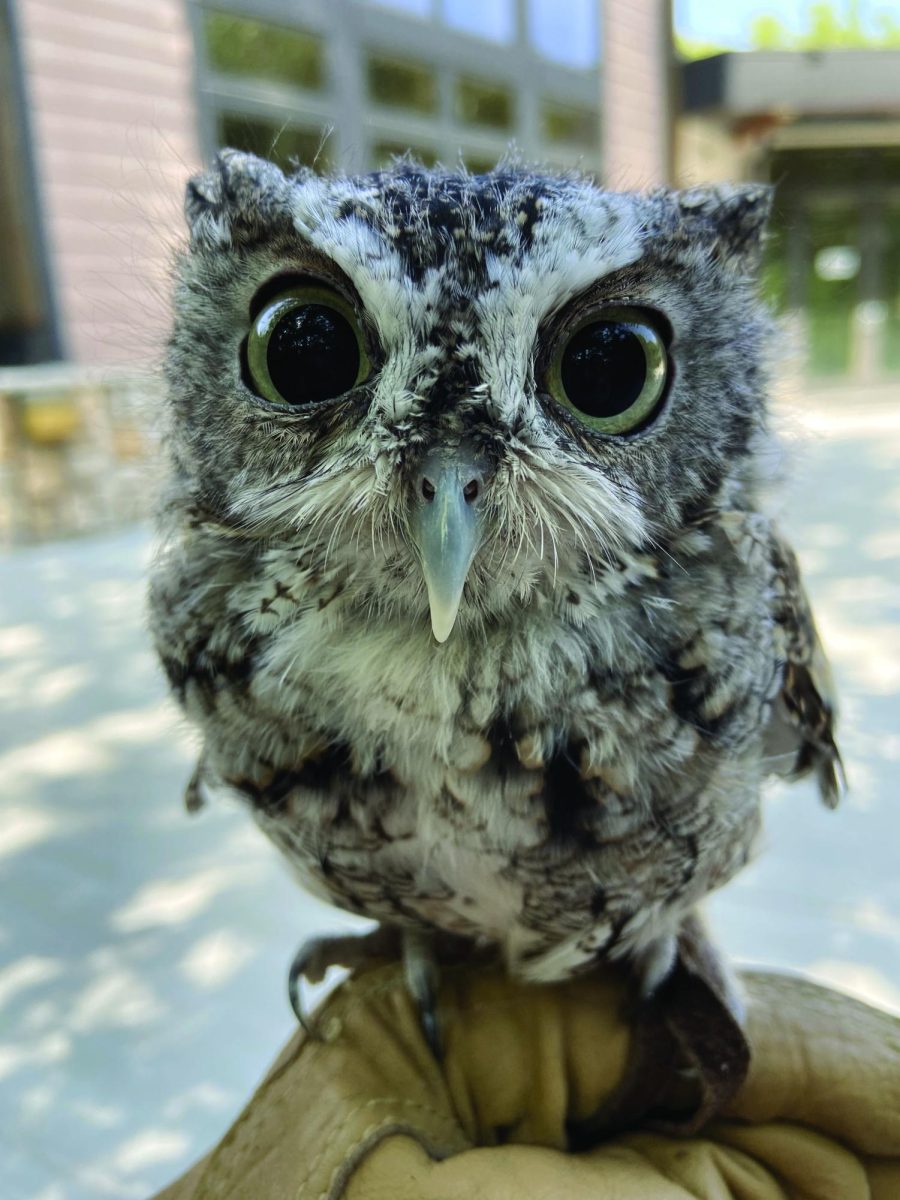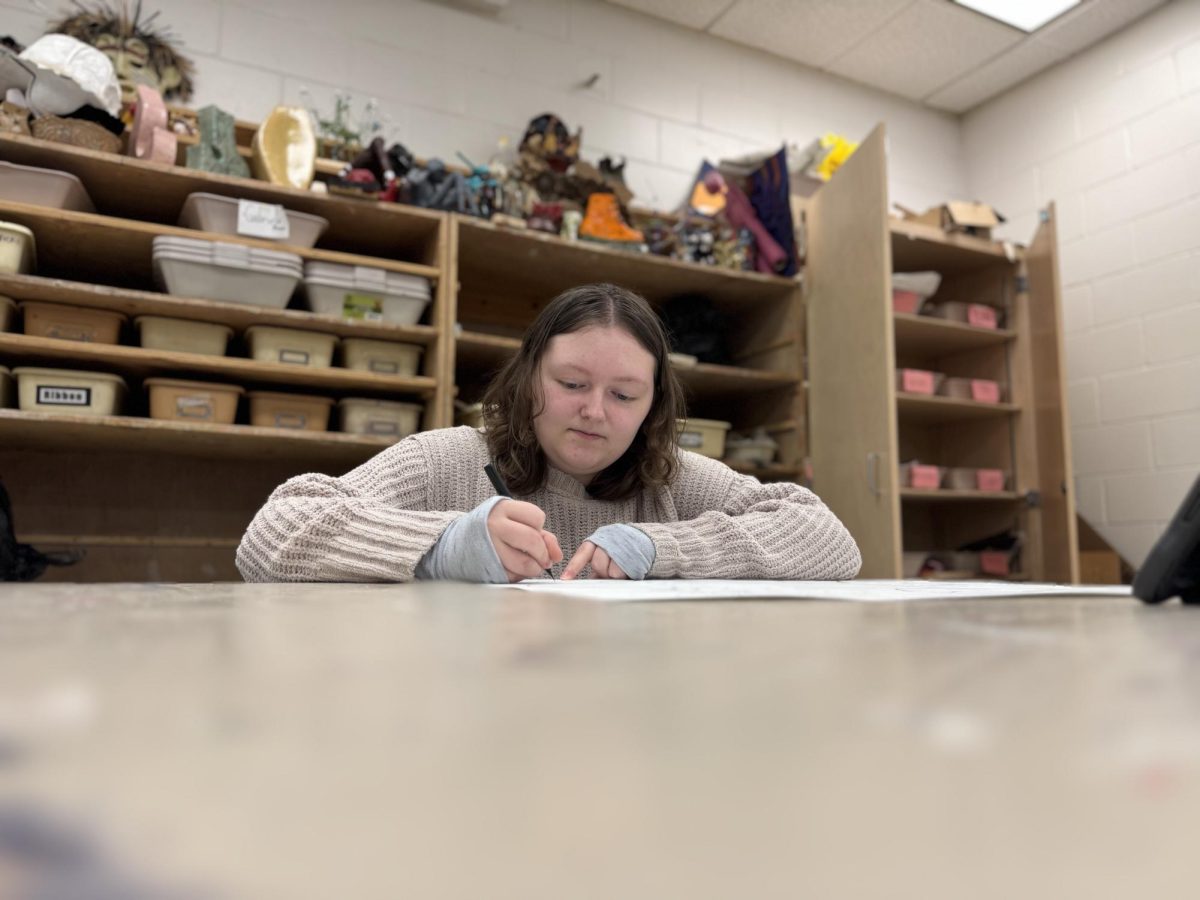
The Diversity Club meeting started like any other. Sponsor Mark Coup passed out snacks, along with a flier for one of the club’s upcoming events. Students scrawled their names on the attendance sheet and took their seats, chatting and laughing.
Coup stood at the front of the room and called for attention. The dimly lit classroom fell to a hush as he talked about the upcoming winter holidays. He reminded the club members that not everyone celebrates the same holidays or in the same way. He discussed his own experiences celebrating Hanukkah. “I don’t put up a Christmas tree,” he said, which was met with a pitying “aw” from the back of the room.
But Coup did not need a Christmas tree to find contentment in his own religion. He appeared happy as he described all the good food he ate during Hanukkah and the time he shared with family. Later, he explained the history of the Jewish holiday. While not one of the major holidays in Judaism, Hanukkah celebrates the time when Jewish people rose up against their Syrian Greek persecutors in the second century B.C.E. It lasts eight days, in honor of the eight days that candles burned in the Jewish Second Temple.
“When I look at Hanukkah, it’s more a matter of standing up for what you believe, not trying to push it on someone else, but being able to do what they want,” Coup said. “Besides, the food’s real good.”
Coup is not the only person who finds joy from celebrating holidays. Junior Killian O’Lone celebrates the winter solstice as a time to experience renewal and growth. The solstice, which will occur on December 21 this year, is honored by pagan cultures around the world as the shortest day of the year.

“I grew up celebrating it because my mom is a pagan,” O’Lone said. “I associate that with my mom and my sister because we’ve been the only ones that really do it. I see the winter solstice as a very important thing for just…new beginnings.”
O’Lone identifies as both Episcopal, a denomination of Christianity, and Animist. Animism is a broad spiritual belief that elements of the natural world like animals, plants, wind, the sun, and the moon have consciousness.
“People don’t really recognize people celebrating winter solstice as a usual thing,” O’Lone said. “Usually on the winter solstice it’s less big just because it’s not as commercialized as Christmas is.”
On the day of the solstice, O’Lone takes time to reflect on the year and prepare for the future. His family also shares gifts, makes crafts, and practices spells together.
“Usually we try to do something to do with the winter kind of thing. Usually maybe a craft or something,” O’Lone said. “And it’s also the time you do spells and stuff, practice witchcraft…because the winter solstice is one of the days where the veil between the spirit world and the physical world is the thinnest.”
In addition to the winter solstice, O’Lone celebrates Christmas with his family. This day is a time for Christians to celebrate the birth of Jesus Christ, who is believed in the Christian faith to be the son of God.
“A lot of times I see relatives that I don’t see very often around Christmas, so I hold them very special in a secular way, and then also in a more, I guess, spiritual sense,” O’Lone said. “I hold it a little bit dear due to the fact that, like, that’s when you celebrate Nativity, the birth of Jesus Christ.”
Another student who celebrates Christmas is sophomore Anthony Carrero. In addition to Christmas, Carrero and his family celebrate Three Kings Day on January 6, a holiday honored as the day that Three Wise Men brought gifts to baby Jesus.
“I grew up in a family where Three Kings Day was something special,” Carrero said. “It’s something that we have to celebrate and something where we have to stay close as family.”
Three Kings Day is often celebrated through gift-giving and eating Rosca de Reyes, a type of sweet bread that is made in the shape of a crown. Carrero uses the day to spend time with family, share gifts, and play board games.
“It feels nice knowing that something that I like to do and my family does it together,” Carrero said. “It’s like something that we get connected with.”
In Nebraska, most people are Christian–up to 74%, according to the Pew Research Center. However, around 4% of Nebraskans identify as other religions like Jewish, Muslim, Hindu, or Buddhist. At Diversity Club, Coup recognized that although a majority of people in our state are Christian, it is still important to recognize cultural and religious diversity.
“I know lately diversity has come under attack. In fact, University of Nebraska got rid of their diversity organization,” Coup said. “Diversity is part of the world… we don’t have to agree with each other, but we don’t have to be mean to each other.”
One class at East focuses on educating about the diversity of cultures and religions throughout the world. Comparative World Religions, taught by instructor Stephanie Simon, teaches students about the holidays, foods, history and customs of religions from Islam to Buddhism.
“I think it’s crucial that students learn about religions different from their own because it helps us have an open mind,” Simon said. “When we know more about a different religion… we have a better understanding of the people that we interact with every day and so that we can spread more love.”
Sharing love, Coup agreed, is what the holidays are all about–no matter what holidays you choose to celebrate. In fact, Giving Tuesday, this year on December 3, is a global day that encourages generosity and charitable giving across all cultures and religions worldwide.
“It’s giving. It’s charity, and it’s kindness,” Coup said. “And when… we actually look at all the religions, that’s really what it is. Treat each other kindly.”






![Smile! On April 8, 2025 at Bellevue East High School, junior Kasen Warner signed with MH Equipment. MH equipment is going to pay for their two year degrees in skilled and technical trade areas and pay for a full set of tools. “This opportunity helps me because I'm gonna be shadowing people and learning more about how to do it [do things in his trade],” Warner said.](http://beaststudentmedia.org/wp-content/uploads/2025/05/IMG_4408-858x1200.jpg)
![Aim and Fire! On March 29, senior Christopher Lively prepares to shoot . The competition was held at the Bellevue Rod and Gun club.] “[It was] very windy and that caused me to do very badly. There were a few good sharpshooters and people who shot 15 out of 100,” Lively said.](http://beaststudentmedia.org/wp-content/uploads/2025/04/Resized_20250329_121914_1743269425901-1200x900.jpeg)